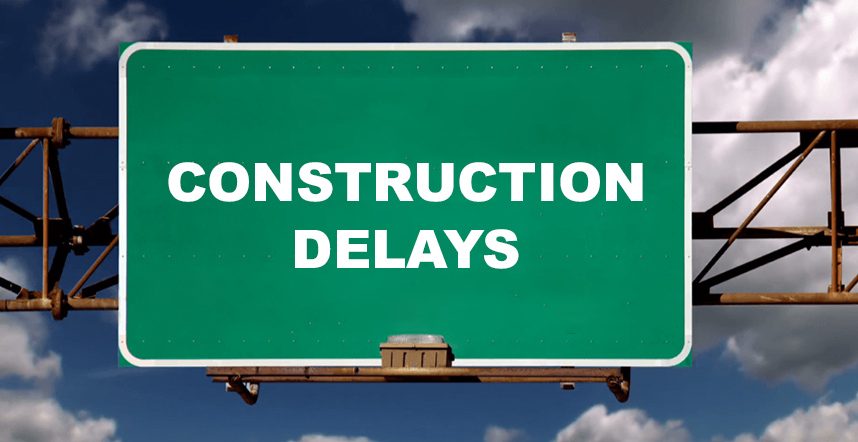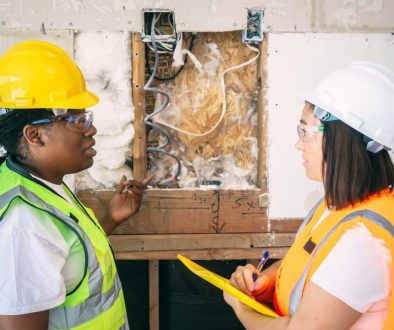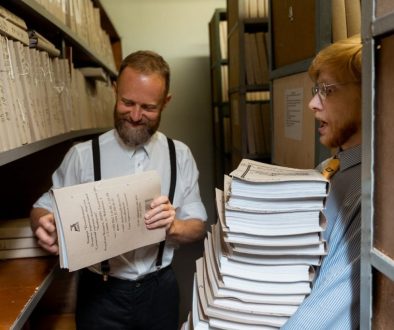Construction Delays & Project Disruptions | What You Need to Know

Unexpected construction delays, soaring prices, and project disruptions outside of a builder’s control can leave a builder at risk for the resulting inability to complete a project timely. These disruptions can come from many sources, including natural disasters, unusually severe weather, and labor strikes. As demonstrated in 2020, however, disruptions might come from a pandemic that causes a supply chain problem, which causes a builder to find itself unable to acquire specific materials when needed. Also, reduced or remote governmental services can delay inspections or the issuance of required permits. Without protective language in the contract for such events, the builder might be liable for the owner’s damages for failing to deliver the project on time.
This article will briefly examine the questions raised by material shortages and other pandemic caused delays, how contract language can provide answers, and what options are available when there is no applicable contract language.
Construction Delays & “Force Majeure”
Typically, a construction contract will contain a “force majeure” clause that, in certain situations, provides the builder relief for failing to deliver a project on time. Force majeure clauses generally relieve the parties from performing their obligations in some instances where the cause is outside the control of either party. Contrary to popular belief, typically, these clauses are invoked by a narrow set of circumstances and may not encompass issues caused by pandemics or the inability of a manufacturer to timely produce or deliver materials. Lessons from recent events have emphasized the need for a builder to provide contract clauses that prevent a builder from paying for problems that are outside the builder’s control. For example, the pandemic sometimes made finding healthy workers difficult and caused work disruptions due to COVID protocols. As a result, it is vital to revise the standard force majeure clause to include these scenarios.
A standard force majeure clause provides for forgiveness for failure to fulfill an obligation, such as timely completion of a project if caused by an “act of God.” An “act of God” is an unpredictable event outside of human control, such as a flood, tornado, earthquake, volcanic eruption, and other natural disasters. Because the standard force majeure list may not encompass many situations outside of the parties’ control, such as pandemics and material shortages, expanding the list of conditions covered by the force majeure clause is advisable.
The AIA A201-2017 lists the following reasons for which a builder can seek an extension of time:
1) an act or neglect of the owner or owner’s architect,
2) change ordered in the work,
3) labor disputes, fire, unusual delay in deliveries, unavoidable casualties, adverse weather conditions,
4) delays authorized by the owner, and
5) other causes the architect determines justify a delay.
Likewise, a builder may want to add provisions relating to material shortages, government-imposed work rules, supply chain disruptions, shortages of material, delayed inspections and permits, government or regulatory actions, such as stop-work orders, relating to quarantines, embargos, travel restrictions, or any widespread infectious disease, such as epidemics or pandemics.
If the builder can prove a delay results from a cause in a standard force majeure clause, a builder is usually afforded extra time to complete the project but not necessarily more money. If the force majeure condition lengthens the time the builder keeps its workforce on site, the builder may want to add a provision to recover its general conditions.
Legal Defenses
If a builder does not have a force majeure clause, a builder still may be able to argue for relief if construction delays were caused by factors outside of the builder’s control. In such situations, a builder may be able to assert certain legal defenses. The most commonly claimed defenses are impossibility, frustration of purpose, and mutual mistake.
Impossibility excuses nonperformance when there has been a change in circumstances that makes the performance of the contract impossible, such as when a party cannot paint a house because the house burned down beforehand.
Frustration of purpose occurs when an unforeseen event undermines a party’s principal purpose for entering into a contract such that the performance of the contract is radically different from the performance of the contract that was initially contemplated. Frustration of purpose occurs when the parties can still perform the contractual obligations, but there is no longer a reason to do so. Frustration of purpose differs from impossibility in that impossibility concerns duties specified in a contract, and frustration of purpose concerns why a party entered into a contract.
Finally, a mutual mistake occurs when 1) there was a mistake, 2) the mistake was material, and 3) the mistake was mutual.
When faced with these complex construction issues, it is advisable to consult with expert Construction Lawyer Joe Tolbert of Brackett & Ellis, P.C., who can be reached at 817-338-1700 or visiting www.ftworthconstruction.lawyer.


